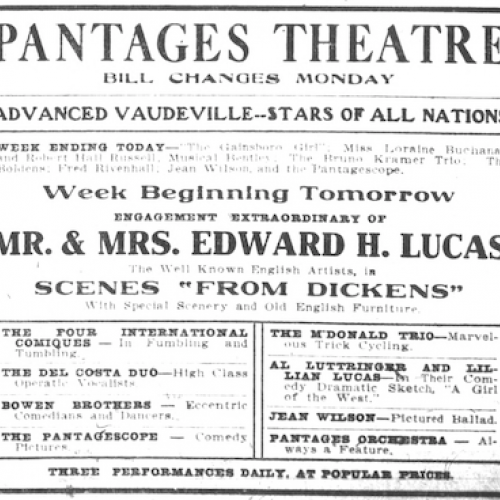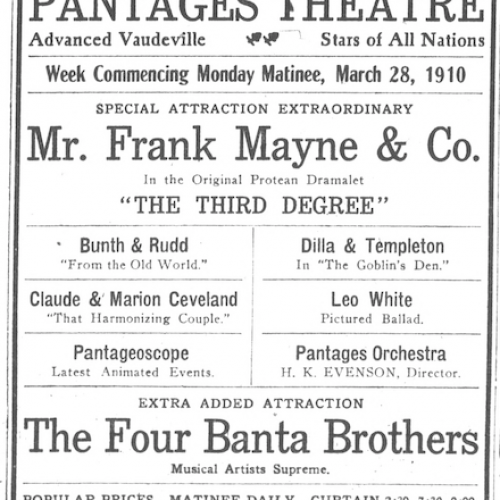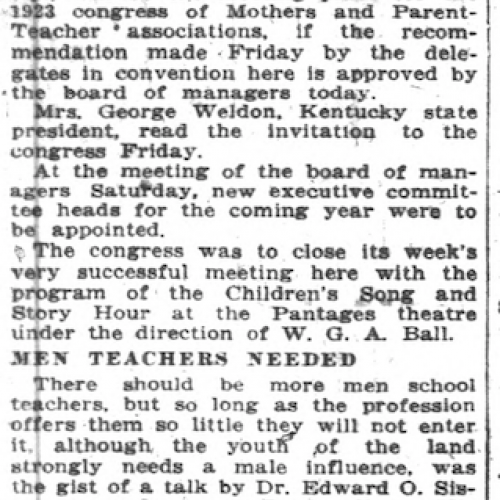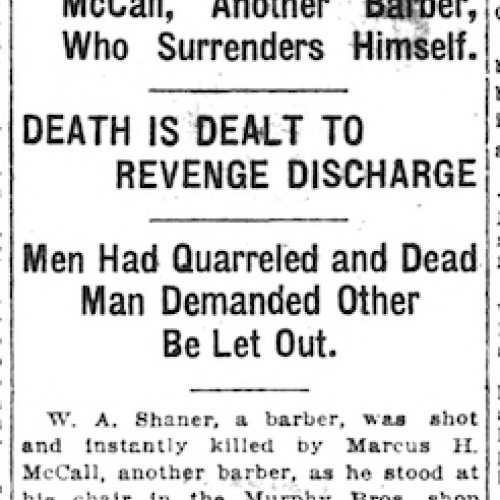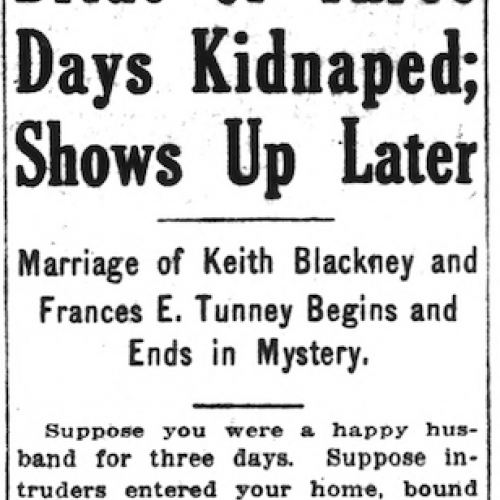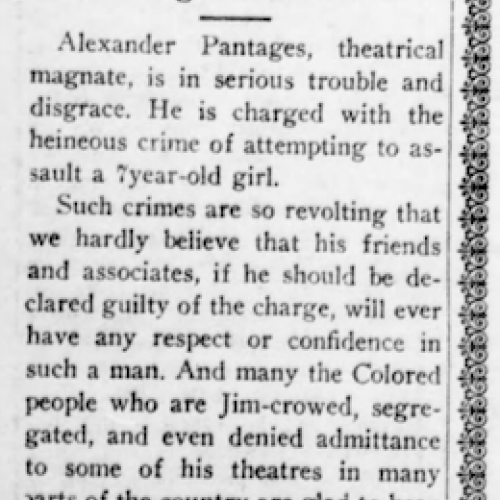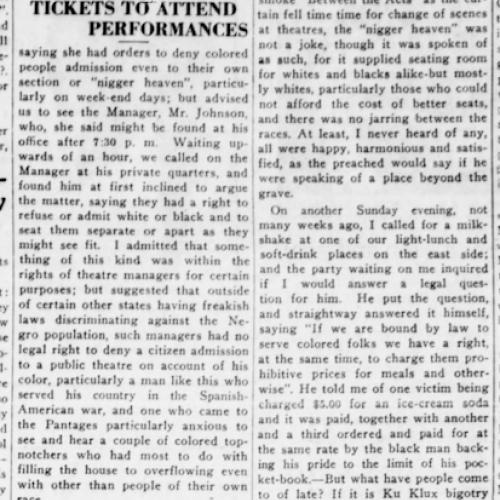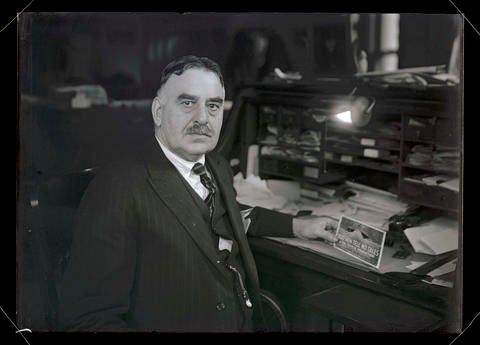
Impresario and entrepreneur Alexander Pantages opened his eponymous theater in late December 1905 at Fourth & Stark in downtown Portland in the space formerly occupied by the Liberty Theatre. From the beginning he incorporated movies into his programming. Along with the vaudeville comedians, jugglers, and trained dogs, "The Biograph" provided moving image entertainment to round out the program.
The Portland location also featured the Pantages Orchestra and would exhibit films produced by The Pantagescope, including those of the animation and comedy genres. (Images A and B)
One article in the Oregon Daily Journal briefly mentions the “Children Song and Story Hour” event, hosted by the Mothers and Parent Teacher associations at the Theatre. (Image C)
Newspaper articles and advertisements directly published about the Pantages during the early 20th century were positive and painted the theater as an exciting, benevolent business. Portland’s Pantages, however, was oddly often named in front-page articles about crime and death. On Christmas Day of 1916, an article mentions the Pantages in context of a murder (Image D). Four year later on January 15, a peculiar incident involving the young Mr. and Mrs. Blankeney made headlines in the Oregon Daily (Image E). Mrs. Blankeney was described in the article as a “pretty cashier” who worked at the Pantages.
Near the end of the 1920s, the Pantages Theatre circuit as a whole began to receive negative journalism due to the criminal behavior of both its owner Alexander Pantages and his wife, perhaps contributing to the theaters’ abrupt end. (Image F)
It is documented in one of Portland’s African-American newspapers The Advocate that the Pantages had segregated seating. Tickets were offered to whites at various price points, depending on the quality of seat placement. Whites could purchase seats in the blacks section for the lowest rate. (Image G)
Although the Pantages circuit no longer operates today, there are three independently-run Pantages Theaters in the US, the most well-known being the Hollywood Pantages located in California.
Advertising from this early phase promoted the venue as the "best family theatre." Ticket prices started at 10 cents, with performances at 2:30 pm, 7:30 pm, and 9 pm everyday. The Pantages offered a broad selection of entertainment from vaudeville performances such as "The Famous Shedman," comedic plays such as "The Clerk and The Bellboy," and musical performances such as "Techau Tavern Quartet." Additionally, the theater offered a very diverse selection of performances from trained dogs, jugglers, comedy entertainment, moving picture comedians, and picture ballads. All of their performances were targeted towards providing family fun and entertainment, and by far, having the best vaudevilles possible. The majority of the Pantages theater's promotional strategies were focused on buying newspaper advertisements and promoting their performances scheduled for the week (with one large performance that takes a large portion of the ad and a few minor performances that take less space). Additionally, the majority of their advertisements focus on marketing themselves as the to-go place for the very best vaudeville performances. The placement of the ad is very close to other competing theatres such as the Marquam Grand Theatre or the Hellig Theatre. Throughout many newspaper advertisements, the same competitors are seen very closely placed next to the Pantages Family Theatre, so it's very obvious that they're all fighting for the same customers to go their specific theatres.
The theater moved to a more spacious location at 7th (Broadway) and Alder in 1911.
The Pantages vaudeville circuit ran across the western United States and Canada for several decades, earning notoriety for their original and enticing vaudeville performances. Programs often showcased tumblers, dancers, “eccentric comedians” and opera singers, just to name a few.
